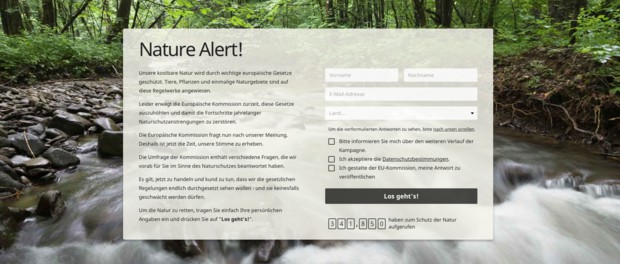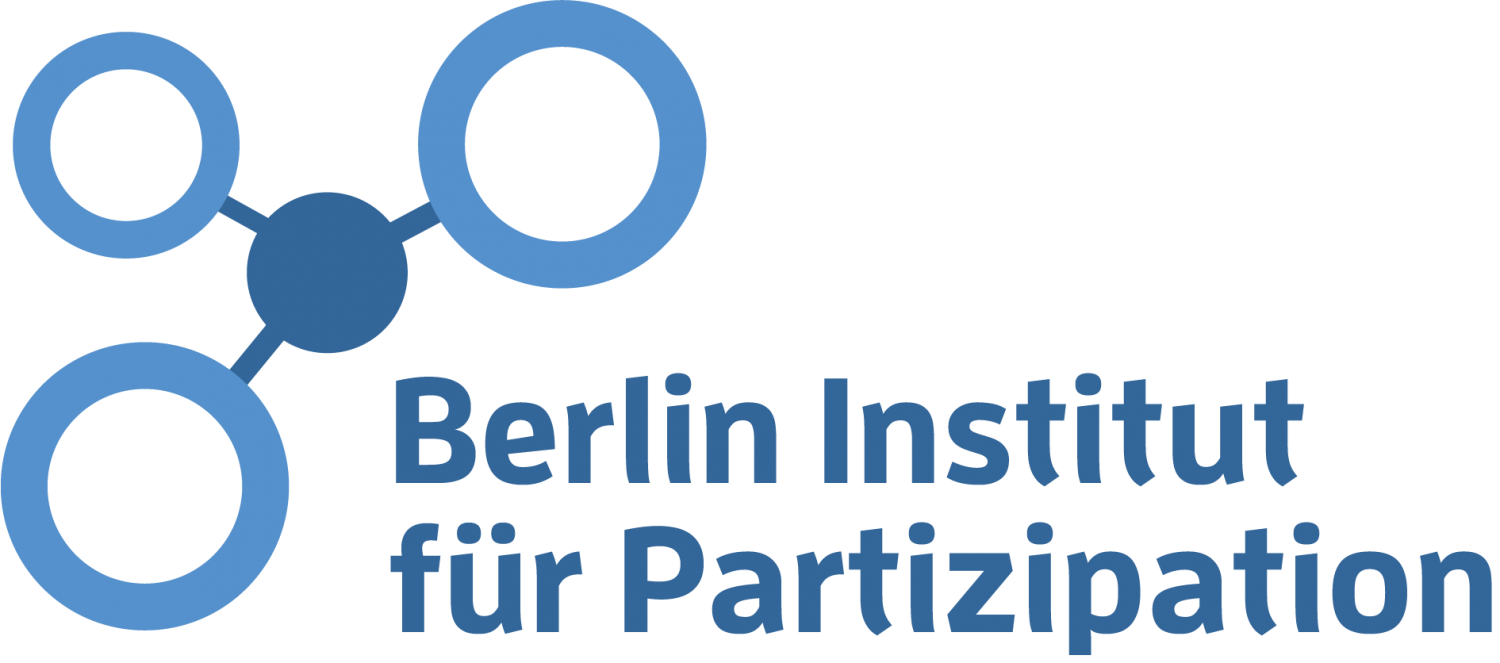Bürgerbeteiligung bei Umweltschutz-Richtlinien
 Quelle: www.naturealert.eu/de, eigene Aufnahme (10.07.2015)
Quelle: www.naturealert.eu/de, eigene Aufnahme (10.07.2015)
Die Europäische Kommission evaluiert im Rahmen eines sogenannten „Fitness-Checks“ seit Oktober 2014 die EU-Vogelschutzrichtlinien und die Fauna-Flora-Habitat (FFH)-Richtlinien. Dabei soll v.a. überprüft werden, ob die genannten Rechtsakte „überproportional“ hohe Kosten und Schwierigkeiten für die Wirtschaft verursachen und somit eventuell zusammengeführt und modernisiert werden könnten. Umweltverbände befürchten jedoch, dass dieser Check zu einer Schwächung des Naturschutzes führt – indem durch die mögliche Deregulierung Schutzstandards abgeschwächt werden.
Aktuell führt die Kommission eine öffentliche Konsultation der Bevölkerung und Beteiligten bis zum 24. Juli durch, um Stellungnahmen zu dieser Überprüfung einzuholen.
In diesem Beteiligungsprozess können alle Interessierten durch die Teilnahme an der Befragung auf der Kampagnenwebsite www.naturealert.eu/de (oder direkt auf der Seite der EU-Kommission) dem Naturschutz einen hohen Stellenwert beimessen.
Ausführlichere Informationen zu dem Vorhaben sind in einem Hintergrund– sowie einem Standpunktepapier dargelegt.
Literaturhinweise
2022, ISBN: 978-3-658-36753-4.
Das "Feuer großer Gruppen" - mit Großgruppen durch Konflikte gehen Buchabschnitt
In: Jörg Sommer (Hrsg.): Kursbuch Bürgerbeteiligung #2, Verlag der Deutschen Umweltstiftung | bipar, Berlin, 2017, ISBN: 978-3942466-15-8.
In: Linguistik Online: Sprache und Demokratie, Bd. 73, Nr. 4, 2015.
Fokusgruppen in der Empirischen Sozialwissenschaft: Von der Konzeption bis zur Auswertung Buch
Springer VS, Wiesbaden , 2012.
Die erregte Republik: Wutbürger und die Macht der Medien Buch
Klett-Cotta, Stuttgart, 2011, ISBN: 978-3608946208.
Der Herbst der "Wutbürger": Soziale Kämpfe in Zeiten der Krise Sammelband
Rosa-Luxemburg-Stiftung, Berlin, 2010.
